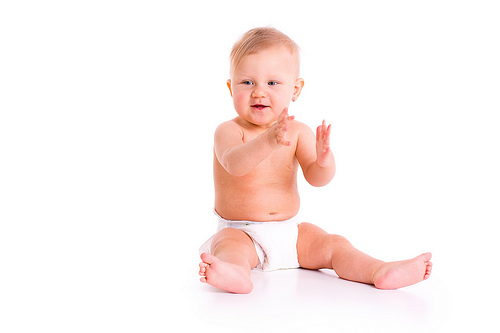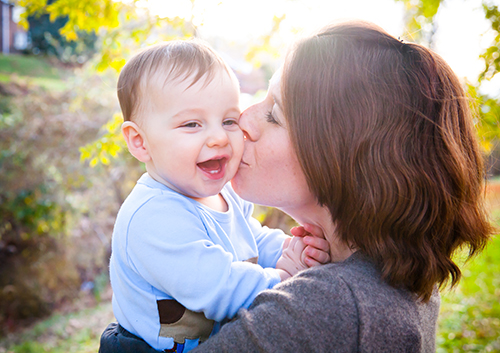February 2nd, 2022

February is National Children’s Dental Health Month, so it’s a great time for our team at Pebble Path Pediatric Dentistry to talk about the importance of getting proper oral health care for your children. Oral health has been closely tied to the overall health of our entire body, so making sure that our children have the best oral health care can not only ensure that they have great smiles, but they are protected from the negative effects of poor oral health as well.
Special Care for Children’s Teeth
Oral health care should begin with the very first tooth that grows in your baby’s mouth. Even though these teeth will fall out within a few years, baby teeth hold a space for your child’s permanent ones, and it’s important that your child has a healthy mouth when those permanent teeth arrive. Without proper care, even baby teeth can decay and cause a host of problems, including:
- Painful teeth and gums
- Difficulty chewing, eating, and sleeping
- Gum disease and inflammation
- Embarrassment when talking and smiling
Develop Good Oral Health Habits Early
As a parent, you can teach your child the right way to care for teeth and make sure he or she visits Dr. Huynh and Dr. Parks regularly for cleanings and checkups. According to the U.S. Department of Health and Human Services, almost 50 percent of children under 12 have some form of tooth decay, and it is one of the most common childhood diseases. Alarmingly, a report by the National Institutes of Health, Oral Health in America, found that almost six out of ten children have cavities or other tooth decay (also called “caries”).
There are many things you can do to help your child maintain a healthy mouth with strong teeth and gums.
- Brush your children’s teeth twice a day when they are babies, then teach them to do it on their own when they get older.
- Be sure your child gets enough fluoride—you can find out whether it is already in your drinking water, and provide supplements if it is not. If you are unsure how to get more fluoride, give our office a call to discuss. In addition, make sure your child is brushing with fluoride toothpaste.
- Feed your child a healthy diet, high in fruits and vegetables and low in added sugars. We especially recommend you avoid sugary drinks.
- Bring your child to our McKinney, TX office for regular dental checkups and cleanings. Coming in every six months is recommended.
Helping children develop healthy habits to care for teeth while they are young is important. These habits can set the stage for good oral health care throughout their entire life. They can avoid many of the problems that result from poor oral health, including gum disease, cavities, and tooth decay. Start encouraging those habits now during National Children’s Dental Health Month, and help your children reap the benefits through the rest of their lives.
January 19th, 2022

Every moment of your baby’s first year of life is precious, since every day your child grows a little, develops new skills, and discovers new things. Most of it is wonderful, but parents don’t like to see their babies in pain. That’s why teething can be such a hard experience. However, you can take steps to make it easier for you and your baby.
What to Expect
Most babies begin teething around the age of six months, when the lower central incisors start to appear. Shortly after this time, the upper central incisors poke through, followed by the lateral incisors, first molars, canines, and second molars. Unfortunately, you’ll probably know that your baby is teething not because you see these teeth come in, but because your baby will be in discomfort. These are some of the signs to watch for when you’re expecting your baby to begin teething.
- Tender and sore gums
- More drooling than before
- Being crankier than usual
- Chewing on hard objects
What You Can Do
As a parent, you want to do everything you can to make your child more comfortable. These are some approaches that Dr. Huynh and Dr. Parks and our team recommend:
- Take a clean moistened wash cloth or use your own washed finger to rub your baby’s gums and provide relief due to the pressure.
- Provide a firm rubber teething ring for your baby to use, but don't use the type that is filled with liquid.
- Use a bottle. A bottle filled with cold water can be soothing. Don’t give your baby formula, milk, or juice constantly because the sugar can cause tooth decay.
- Medications can help for extreme crankiness. Infant Tylenol is an example, but it’s best to check with your pediatrician before giving your baby medications.
You might also want to take special care to dry the drool. It’s not just to keep yourself and your baby dry. Keeping your baby’s skin dry can help prevent irritation.
When to Visit Us
Once your child’s first tooth comes in, it’s time to start thinking your baby’s first trip to our McKinney, TX office. The American Dental Association suggests that you bring your child to the dentist within six months of the appearance of the first tooth, or at about one year of age. Dr. Huynh and Dr. Parks can do a quick check for tooth decay, and we’ll make sure you know how to take care of your child’s new teeth.
January 12th, 2022

A study conducted in Washington State in 2004 and another conducted in Madrid, Spain in 2012 both reported findings that support a direct relationship between parents’ dental fear and their child’s fear of the dentist.
The Washington study examined dental fear among 421 children ages 0.8 to 12.8 years old. They were patients at 21 different private pediatric dental practices in western Washington state. The Spanish study observed 183 children between the ages of seven and 12 as well as their parents.
The Washington study used responses from both parents and the Dental Sub-scale of the Child Fear Survey Schedule. The survey consisted of 15 questions, which invited answers based on the child’s level of fear. The scale was one to five: one meant the child wasn’t afraid at all, and five indicated he or she was terrified. The maximum possible points (based on the greatest fear) was 75.
Spanish researchers found a direct connection between parental dental fear levels and those among their kids. The most important new discovery from the Madrid study was that the greater the fear a father had of going to the dentist, the higher the level of fear among the other family members.
Parents, but especially fathers, who feared dental procedures appeared to pass those fears along to every member of the family. Parents can still have some control over fear levels in their children. It is best not to express your own concerns in front of kids; instead, explain why going to the dentist is important.
Dr. Huynh and Dr. Parks and our team work hard to make your child’s visit at our McKinney, TX office as comfortable as possible. We understand some patients may be more fearful than others, and will do our best to help ease your child’s anxiety.
January 5th, 2022

Dr. Huynh and Dr. Parks and our team at Pebble Path Pediatric Dentistry specialize in pediatric dentistry, and we understand that children can be frightened of things they do not understand. This anxiety is often heightened by an unpleasant dental experience or stories they hear from classmates. We have many methods at our McKinney, TX office to make your child’s dental visit pleasant and anxiety-free.
Listening
The first thing Dr. Huynh and Dr. Parks and our team do is talk to your child, listen to any concerns he or she may have, and take the time to explain the dental work that will be done. Often children will lose their fears by simply understanding what is happening and why. In addition, you are welcome to be in the room with your child during exams and treatments. When a child is able to see that the parent is relaxed, this is more conducive to the child’s relaxation.
Relaxation
When you arrive at Pebble Path Pediatric Dentistry, let your child to play with the toys we provide. This starts the visit in a positive manner. Taking your child’s mind off the exam is useful. While your child is undergoing an examination or procedure, listening to music or watching a video can support a sense of relaxation. When children understand that we care, their anxiety levels are reduced.
Sedation
Nitrous oxide is a sedation technique commonly used to reduce anxiety and alleviate any pain. It is beneficial partly because the effects wear off quickly. Topical pain relievers can also be useful for children with sensitive teeth, and this will eliminate discomfort.
Deeper sedation is useful for complex dental issues, extreme anxiety, or a fear of needles. A liquid or tablet sedative can be given before your child’s appointment. This type of sedation is also helpful for children with a fear of the masks used for nitrous oxide.
We welcome you and your child to discuss any concerns that you have regarding his or her dental appointment. We want your child to be free from anxiety about visiting Dr. Huynh and Dr. Parks. The earlier your child’s fears are addressed, the less likely the fear will carry into adulthood.



